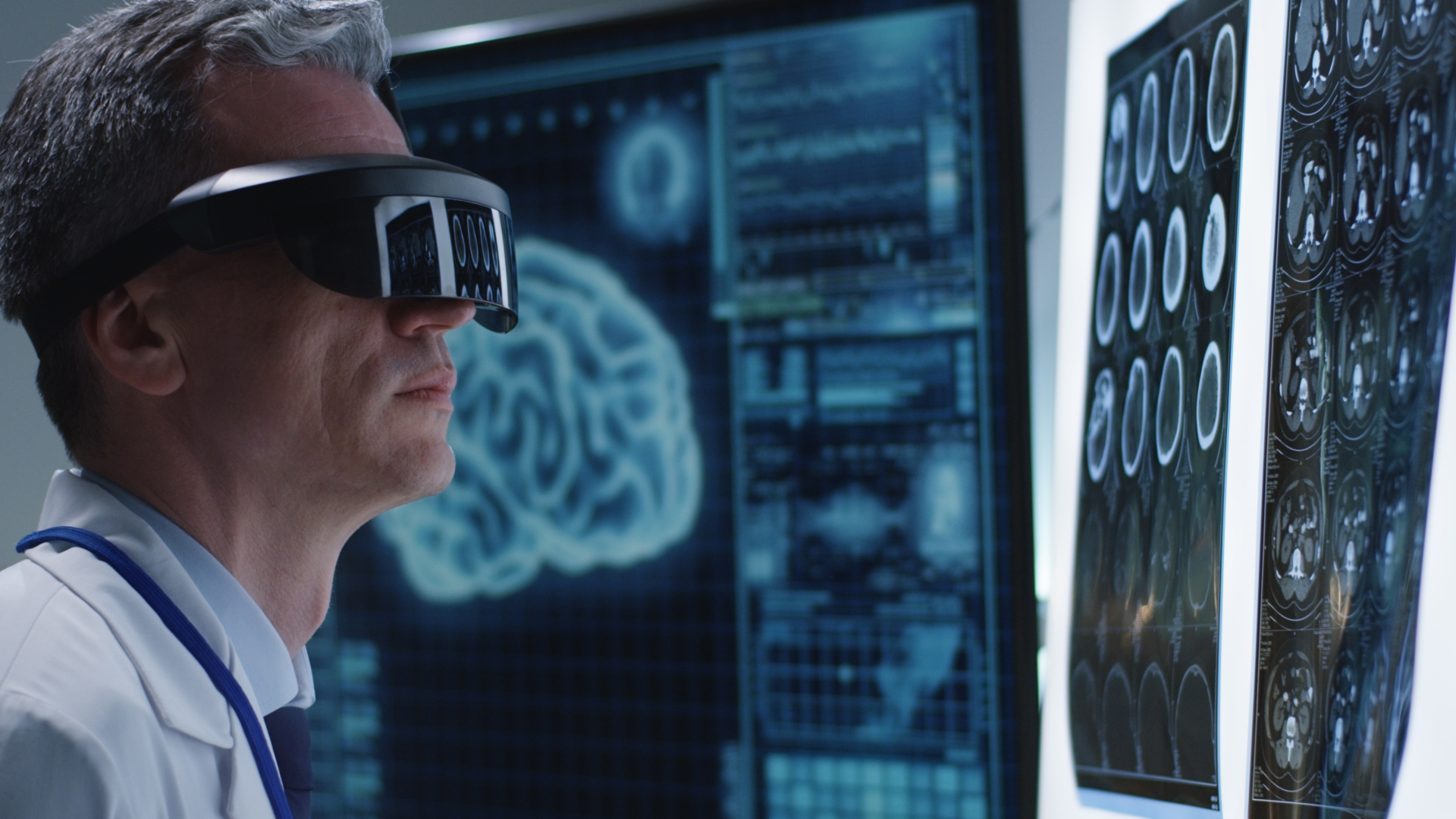Technological progress – blessing or curse?
ChatGPT is on everyone’s lips. For the digital industry, this voice and text-based chatbot is a piece of absolute hype when it comes to artificial intelligence (AI). The underlying technologies, such as machine learning and neural networks, are nothing new. However, the chat interface now makes this technology more accessible than any other software demonstration to date.
The potential for change that AI technologies bring to the economy and our society is now apparent to a wider audience.
What do our experts, Frank Ladner, Chief Technology Officer at SYZYGY GROUP, and Marc Zollingkoffer, Director of Software Engineering at SYZYGY Techsolutions, have to say about the AI revolution?

Is ChatGPT the “iPhone moment” for this technology?
Frank: Who knows? Experience has shown us that hype is always followed by disillusionment. There’s no reason why this time shouldn’t be the same. Having said that, there is actually a big difference compared to many hypes of the past: there’s a lot of substance behind this one.
AI technologies are already in use across many sectors today. In our own digital and marketing sector, for example, AI is used in tools and services for audience analysis, targeting, data monitoring and data analysis. AI is also already playing a part in marketing automation, content generation and maintenance, and software development, to name just a few areas.
If the basis for ChatGPT isn’t new, why all the excitement?
Marc: The chatbot is another example of how quickly AI technology is developing and increasingly playing a role in the value chain. It delivers significant productivity and quality benefits by automating routine tasks and making complex tasks accessible for machine processing for the first time. As a result, this technology is likely to gain traction, just like all the technologies from the past that offered comparable advantages.
![]()
We need to press ahead with technological advances and innovation to counteract these demographic trends.
So does that mean we’re living through the start of the next stage of the digital revolution?
Frank: If you look at it like that, yes. AI technology will continue to progress and eventually find its way into all areas of the economy. Even if ChatGPT turns out not to be the “iPhone moment” for AI technology, that moment will definitely happen, and it won’t be long.
That raises the question of how we should approach this new technology.
Marc: The search for the right approach is nothing new and has often resulted in heated debate around technological progress in general. On the one hand, people fear that machines will be competing for their jobs and thus make large swathes of the population poorer. On the other hand, that is precisely what the utopian dream was always based on: all the basic necessities of life are taken care of and everyone can follow their own inclinations, without facing the daily battle for survival.
What these two visions have in common is that they both see increasing use of technology as optional, both quantitatively and especially qualitatively. You’re free to use it, but you don’t have to.
How can AI provide meaningful support? What do you mean by that? Is the use of technology optional?
Marc: No, the belief that increasing use of technology is optional is wrong in my opinion. If you consider the demographic future of Germany and Europe, it’s clear that we will soon be facing a completely different challenge. We need to press ahead with technological advances and innovation to counteract these demographic trends. It’s not a case of either perdition or paradise. Nor is it about whether we have the courage to do it or can choose another path. Without progress, we simply won’t be able to overcome the upcoming challenges.
Frank: Exactly! If we want to maintain our accustomed standard of living, given the impending demographic changes in Germany and Europe, not to mention the geostrategic and energy policy ones, widespread use of technological innovation, including AI technologies, is essential. That’s the only way we can achieve the progress needed to maintain or improve our standard of living and overcome other challenges, such as reducing carbon emissions by switching from fossil fuels to carbon-free and renewable sources of energy.
![]()
AI technology will continue to progress and eventually find its way into all areas of the economy.
What role will AI play in that?
Frank: In general terms, the use of AI technologies leads to automation of processes and tasks, thus making time and cost savings possible. For example, AI can automate routine tasks, freeing up time and human resources. These resources can then be invested in conceptual and creative tasks, which in turn gives people higher levels of satisfaction and motivation. Processes can be optimised and the scope for errors minimised. Quality goes up, costs go down. Overall, incorporating this technology helps to promote an innovative and competitive economy.
The public eye is most often focused on big issues such as self-driving cars and AGI, or Artificial General Intelligence. Some people fear being rendered more or less superfluous. But there are plenty more tangible tasks out there that could be tackled. Collectively, resolving them could deliver greater benefits in the near and medium term.
What would those tasks be?
Marc: If we look beyond the digital industry, applications in rural medical care are a possibility, for example. Healthcare provision is becoming increasingly difficult in the countryside due to demographic change. Telemedicine and automated diagnostics offer exciting prospects here and can be part of the solution. It comes down to reducing the workload of the dwindling number of doctors by using AI technology. And no, we’re not talking about replacing human empathy with soulless technology. The point is whether treatment can still be provided, and the quality of that treatment.
Or take a completely different example: in last year’s holiday season, there were bottlenecks in passenger and baggage handling. There simply weren’t enough ground staff available. Which suitcase needs to go in which aircraft or which container? Here again, smarter solutions could help to unlock additional efficiency and compensate for staff shortages.
Every sector will be facing similar issues soon, to a lesser or greater extent, because the number of working age people is set to steadily decline.
But AI as a universal solution would require a change of mindset…
Marc: All these “yet to come” innovations can only achieve their full potential if they are also accepted and widely adopted. In this respect, a positive attitude towards this change is needed, even if change brings upheavals and challenges.
A vast number of innovations and inventions – driven and supported by the private, corporate and state sectors alike – will be required to reduce workloads in all kinds of areas, thereby enabling people to concentrate on what really matters and making it possible to deliver services at affordable prices.
Frank: AI technologies allow activities to be automated that couldn’t previously be automated. As such, they raise similar issues as those faced by industry in recent decades due to the advance of automation. The same results can now be achieved with a smaller workforce. Surplus employees can then take on conceptual and management roles instead of manual activities.
What are the consequences of this trend?
Frank: There will be a correspondingly greater demand for training and qualifications. Society and policy-makers will have to engage with these changes in order to ensure positive outcomes. In this respect, the widespread introduction of AI technologies is no different to earlier waves of automation. Solutions were found that delivered or improved our prosperity and quality of life.
Marc: Technical progress is an essential part of overcoming challenges – especially demographic challenges. Whether we regard it as a blessing or a curse depends on how we respond to and manage the associated changes.
We shouldn’t be afraid, we should regard change as an opportunity to be grasped and used. AI technology has the potential to improve our lives in many areas and to help solve the challenges of the future.



